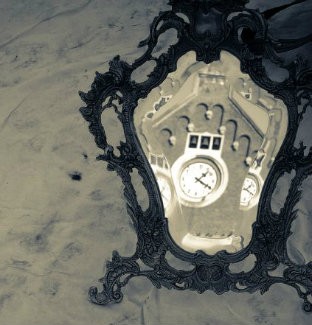The same night for years

There are three nights a year when I feel like I am standing in a tunnel cut through space-time. This tunnel is well lit but narrow, cutting vertically through the years like a probe boring through layers of sedimentary rock. It opens briefly, each of these three nights, after a worship service has ended. It is dark out on Maundy Thursday, Good Friday, or Christmas Eve. There are a few people still in the building chatting or cleaning up, and I am finally taking off my robes, alone in the vesting room.
I see myself in the closet mirror and I feel like I’m in a mirror reflecting a mirror, repeated over and over. Another year has passed, but this moment is exactly the same. Something has happened—Jesus is born, or betrayed, or killed. We have said the prayers, listened to the words, sung the songs, and performed the actions. Then people go home, and I go back to the vesting room to change—where I feel as though I’m walking into a time warp. I’m standing in the same vestments I wore last year, and seven years before. It seems like a single night, instead of eight distinct nights over eight years.
I’m not sure why Christmas pageants, Easter, and Pentecost don’t strike me in the same way. Sunday mornings at church are busy and bubbly with energy and expectation, so it may be that the stillness of nighttime worship is more conducive to reflection and quiet wonder.





